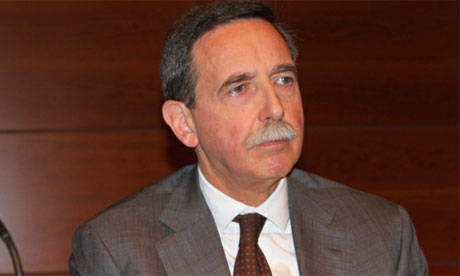A Vatican judge began formally questioning the pope’s former butler, Paolo Gabriele, Tuesday, said Paolo Papanti-Pelletier, (pictured) a judge on the Vatican tribunal.
Papanti-Pelletier, not involved in the case said Gabriele’s said questioning took place in the presence of his two lawyers and it is the first formal interrogation of the only person yet to be arrested in the Vatileaks scandal.
Gabriele, currently charged only with aggravated theft, could also be charged with being part of a criminal association, receiving stolen goods or revealing state secrets, however, Papanti-Pelletier also said all charges may be dropped.
Under Vatican law, Gabriele can be held without inditement for 50 days and with an extension of a further 50 days if the investigation proves to be complicated.
Currently the offenses Gabriele is charged with carry a maximum of five years imprisonment.
Papanti-Pelletier said because Italian magistrates could be called into investigate if any Italian citizens were involved or if crimes were committed on Italian territory, integration of the Vatican and Italian systems of law means there could be two investigations against Gabriele.
There also remains in effect in Italy a 1929 provision that criminalises offending the pope, Papanti-Pelletier said.
Describing the Vatican’s legal system, Papanti-Pelletier told Nicole Winfield of the Associated Press that the Vatican’s legal system is based on variations of Italy’s penal and civil codes dating back to the 1800s – with a few modifications.
“Like Italy, there is the preliminary trial level, an appeals court and a high court, the proceedings of which are open to the public.”
“Unlike Italy, though, if a cardinal were to be put on trial, he would only be judged by the Vatican’s high court, which is presided over by three cardinals.”
Papanti-Pelletier said, “as princes of the church, cardinals can only be judged by fellow cardinals and the pope himself,” and “as such, they skip over the primary and appeals court, which aren’t presided over by cardinals.”
He concluded by says that as in most countries, the head of state – in this case Pope Benedict – can intervene to pardon someone found guilty.
“Technically the Pope can intervene even before the trial begins, but the norm would be for a papal pardon to come after a possible conviction.”
Sources
Additional readingNews category: World.




